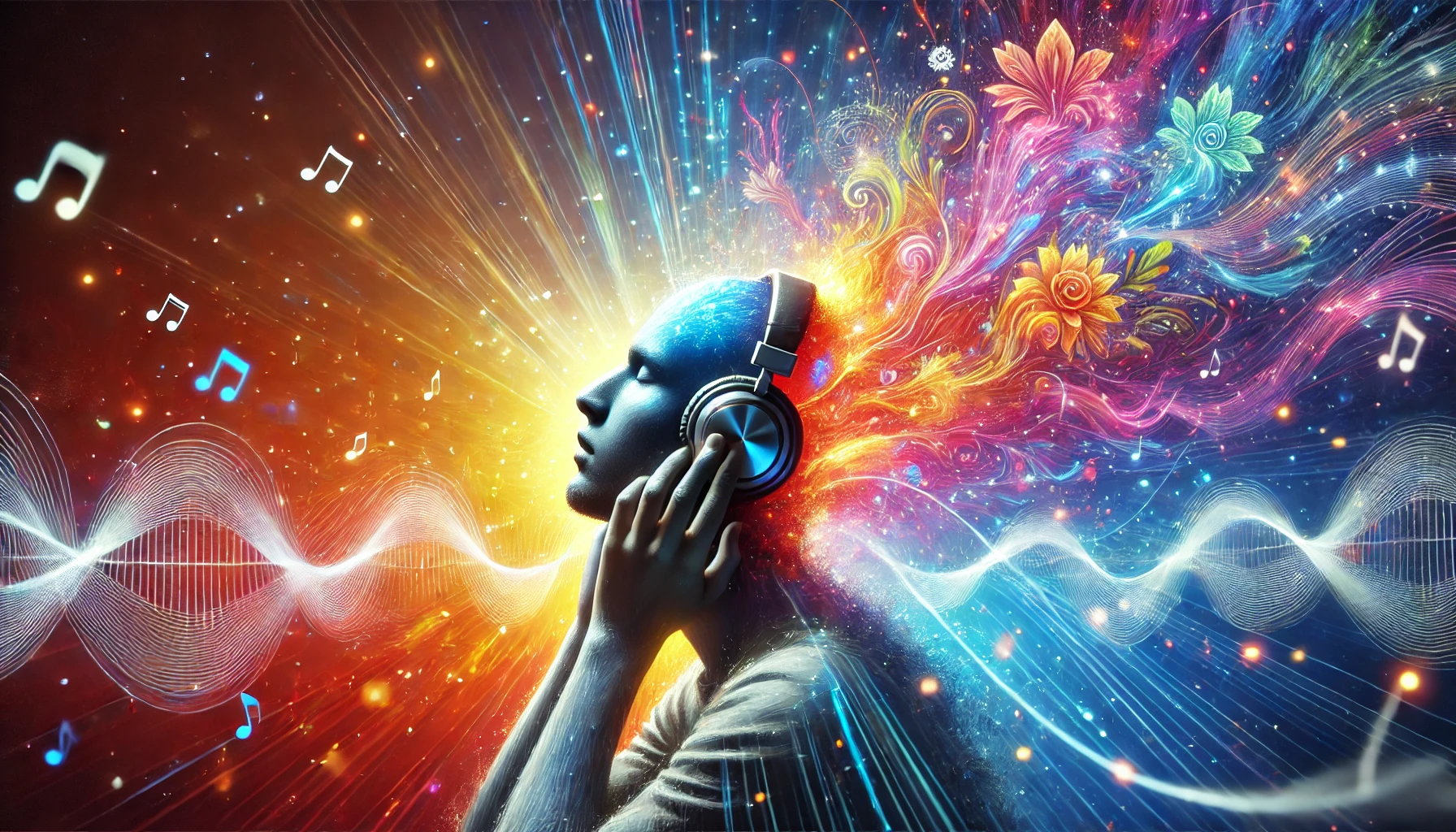Music is more than just entertainment—it has a profound effect on our emotions, memory, and mental well-being. Whether it’s an upbeat song that lifts your mood or a calming melody that reduces stress, music has the power to shape our thoughts, emotions, and even physical health.
But what exactly happens in the brain when we listen to music? And how can we use it to improve our mental health?
In this article, we’ll explore the science behind music’s effect on the brain, its psychological benefits, and practical ways to use music for better emotional well-being.
1. How Music Affects the Brain
1.1 The Science of Music and Emotions
Music activates multiple regions of the brain, including:
- The limbic system – controls emotions and memories.
- The auditory cortex – processes sound and rhythm.
- The prefrontal cortex – responsible for decision-making and focus.
When we listen to music, our brain releases dopamine, serotonin, and oxytocin, chemicals that improve mood, reduce stress, and strengthen social bonds.
1.2 Music and Neuroplasticity
- Music can rewire neural pathways, improving cognitive function.
- Playing an instrument enhances memory, creativity, and problem-solving skills.
1.3 Why Different Music Genres Affect Us Differently
- Upbeat music increases energy and motivation.
- Slow, relaxing music lowers heart rate and reduces anxiety.
- Lyrics-based songs activate the language centers of the brain.
2. The Psychological Benefits of Music
2.1 Music as a Mood Booster
- Fast-paced, energetic music increases dopamine, leading to happiness and motivation.
- Listening to nostalgic songs triggers positive memories.
2.2 Music and Stress Reduction
- Slow tempos lower cortisol levels, the stress hormone.
- Nature sounds and classical music promote relaxation and mindfulness.
2.3 Music Therapy for Mental Health Disorders
- Used to treat anxiety, depression, and PTSD.
- Helps individuals process emotions and trauma through guided music therapy sessions.
2.4 How Music Improves Focus and Productivity
- Instrumental or ambient music reduces distractions and enhances deep work.
- White noise or lo-fi beats help people with ADHD concentrate.
3. Practical Ways to Use Music for Mental Well-Being
3.1 Create Personalized Playlists
- A morning motivation playlist to start the day with energy.
- A relaxation playlist for winding down before bed.
3.2 Try Music Meditation
- Listen to binaural beats for deep relaxation.
- Use soft, instrumental music for guided meditation.
3.3 Play an Instrument or Sing
- Engaging in music stimulates multiple brain functions.
- Singing enhances breathing and reduces stress.
3.4 Use Music to Regulate Emotions
- Play calming music when feeling anxious.
- Choose uplifting music when feeling low.
4. The Long-Term Benefits of Music for Mental Health
- Stronger emotional resilience and reduced stress.
- Enhanced cognitive function and memory.
- Greater sense of connection through shared musical experiences.
Final Thoughts
Music is a powerful tool for mental well-being. By consciously selecting the right music for different moments, we can enhance our mood, reduce stress, and improve overall health.
Start today—create a playlist that uplifts and inspires you, and make music a part of your daily self-care routine!

